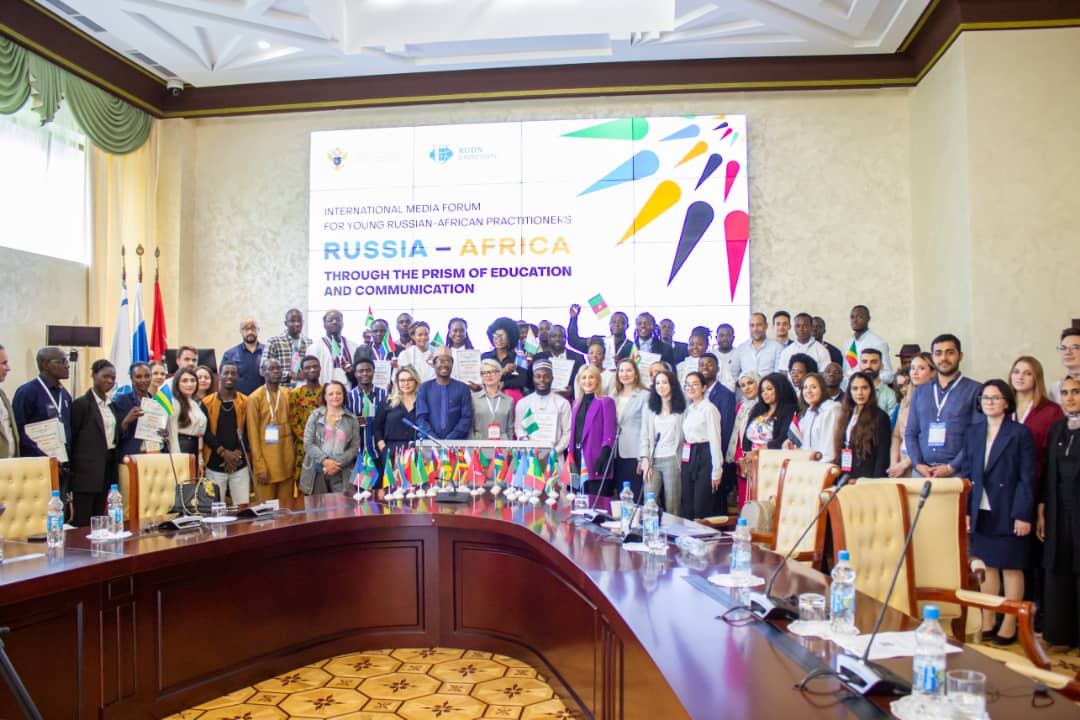By Daud Adebayo
In clear indication of Russia’s commitment to a mutually beneficial and multifaceted partnership with Africa, media professionals and scholars from 32 African countries including Nigeria and their Russian counterparts have committed themselves to strengthening collaboration in the areas of media education and professionalism.
The commitment, which was made during the annual Russia-Africa media forum organised and hosted by Peoples’ Friendship University of the Russian Federation (RUDN University), Moscow in collaboration with the Ministry of Science and Higher Education of Russia, reflected the harmonious relationship between Africa and the Russian Federation.
The forum, held in Moscow from July 24 to 26, 2023 in the same week as the Russia-Africa summit, brought together young media practitioners from Africa and Russia to discuss challenges and opportunities in media education and practice in Africa with a focus on the role of education and communication in enhancing ties between Russia and Africa.
This year’s roundtable discussion was attended by 15 young media professionals and scholars from 11 African countries, which included Nigeria, Cameroon, Rwanda, Tanzania, Cote D’Ivoire, Zimbabwe, Namibia, South Africa, Zambia, Algeria, and Egypt.
At opening session, participants highlighted the role of the Peoples’ Friendship University in educating Africans since its establishment in 1965 and its positive impact on African societies, while emphasising the importance of fostering such cooperation to promote quality media education and journalism in Africa.
At the end of the forum, the participants issued a communique in which they pledged to strengthen collaboration and strategic partnerships between Russia and Africa to enhance media education, knowledge exchange, and information sharing.
While commending the efforts of CEREDMS-Africa, the Faculty of Philology, and the Mass Communication department of RUDN University for their efforts towards strengthening collaboration with African universities and organisations, the communique called for increased investment in media and media education to ensure citizens receive accurate information and are equipped with media literacy.
The participants also urged African governments to improve internet infrastructure, protect journalists in hostile environments, and promote freedom of the press, while
emphasising the need for media plurality and the use of African indigenous languages to moderate the influence of Western media in Africa.
The communique also called for the creation of a robust communication strategy to improve information exchange between Africa and Russia, and tasked Russian media organisations to expand their presence in Africa through the use of local languages for content, while also calling on them to establish partnerships with African media outlets for cultural exchange and balanced reporting.
The hybrid event was joined online by more than 360 participants from Africa and Russia, marking a milestone in the journey towards improving media education, communication, and cooperation between Russia and Africa.
With the resolutions reached at the forum, participants have set a positive path for addressing challenges and fostering greater understanding between the two regions, aiming to create a stronger, more interconnected global community where Nigeria could continue its friendliness with all nations and powers of the world.









